Articles
Food Logistics
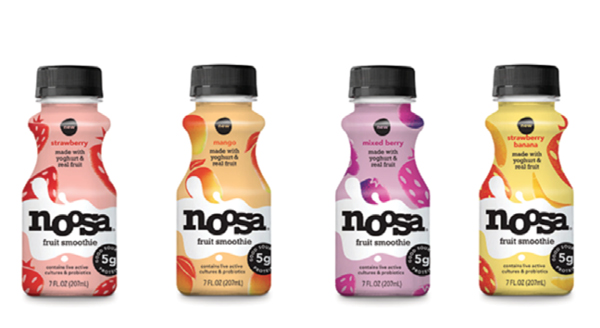
Blend of Solutions Saves the Day for Yogurt Maker
When yogurt maker Noosa needed to sleeve bottles of drinkable yogurt while maintaining their temperatures, Verst provided solutions to make sure processes went smoothly.
Read More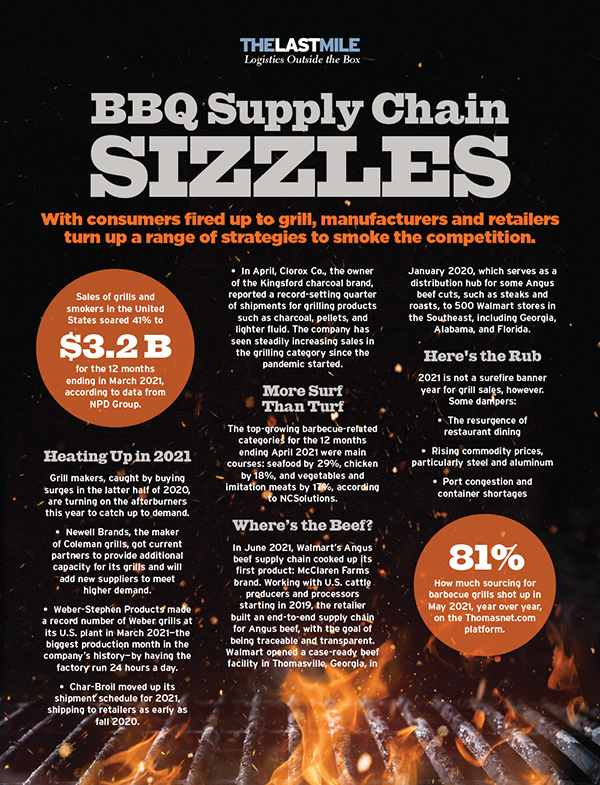
Improving Cold Chain Operations
A wide range of factors can impact the transport of temperature-controlled goods. Here are 10 tips to help ensure smooth cold chain operations.
Read More
Check This Out: E-Commerce Grocers
The shift to grocery e-commerce has retailers hungry for fulfillment improvements and supply chain efficiency gains.
Read More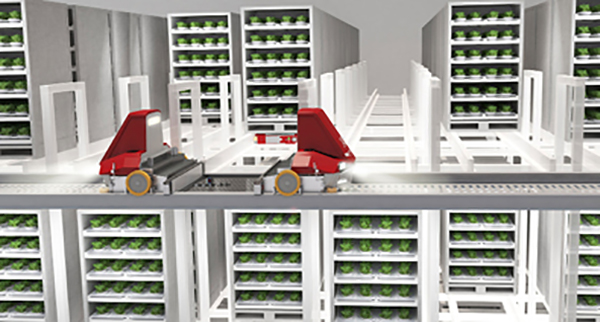
Digging Up Vertical Farming Solutions
Vertical farming—in which indoor spaces are used to grow food—is forecast to increase globally, but such operations can only grow a limited number of crops to make a profit. A new automated solution, created by Swisslog, can help the industry overcome these barriers to growth with better flexibility, reduced costs, and closer proximity to consumers […]
Read More
Vertical Focus: Confections
Chocolate Supply Chain: Bean to Bar None Consumers are more conscious about the ingredients in the chocolate they buy due to vegan diets, lactose allergies, climate concerns, and ethical spending. This increased the demand for premium products and a bean-to-bar approach to manufacturing, says Fortune Business Insights data. These trends are affecting the chocolate supply […]
Read More
GM & Kroger: Transformers
The interconnection between advanced manufacturing, automation, and supply chain management had a boost in the past year. Part of that boost was due to the virus economy, but most was due to the genius and creativity of those seeking solutions to tough business challenges amplified by ever-evolving customer demands. Transformation. Just as the silo-crashing impact […]
Read More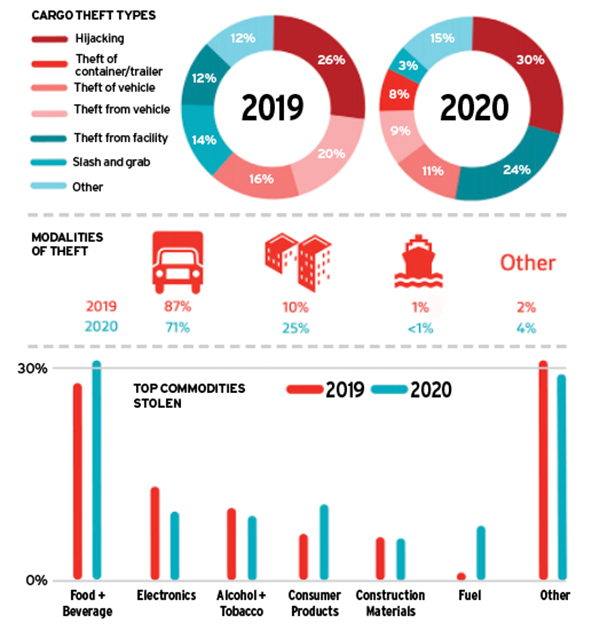
The Art of the Steal
With pandemic-induced lockdowns, e-commerce surges, and transportation restrictions in 2020, cargo theft shifted to new commodities and locations (see chart), says a BSI and TT Club report. New trends include the food and beverage sector experiencing the most theft, as well as an uptick in theft from facilities compared to 2019. In the year ahead, […]
Read More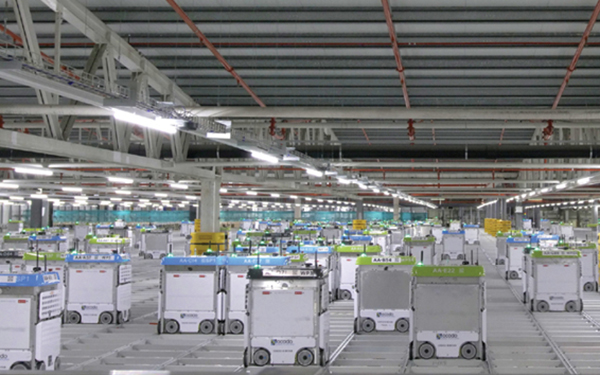
50 Orders in 6 Minutes
Kroger continues to invest in its digital business. By opening America’s first automated warehouse with digital and robotic capabilities in Monroe, Ohio, the supermarket chain can assemble a 50-item order in just six minutes. Comparatively, a Kroger employee takes 30 to 45 minutes to pick items from various areas of the store. The $55-million, 335,000-square-foot […]
Read More
Meat Importer Carves Out Success
The meat supply chain starts at the farm gate and goes to the dinner table, making several sea, land, and air freight connections until it arrives at a local distributor, which serves either the retail or food service (restaurant) markets, but typically not both.
Read More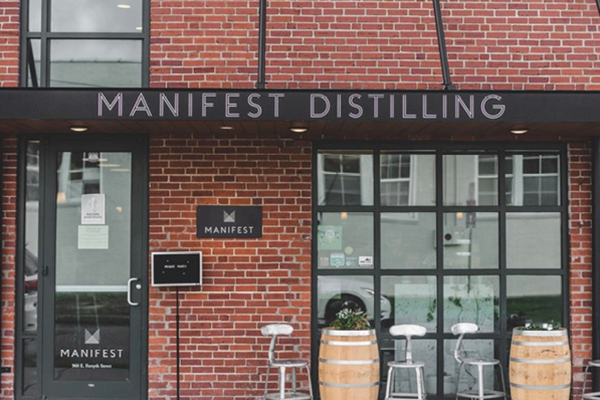
Getting Into the Spirits
Craft distillers like Montanya Distillers—which produces rum from its base in Crested Butte, Colorado, where the high altitude and cool temperatures allow for flavorful aging—typically have been limited to distributing products within their own state, or perhaps a few surrounding ones. If they venture farther afield, they risk falling out of compliance with the myriad regulations governing liquor distribution across the United States.
Read More
Logistics Challenges: Small Businesses Clear the Bar
These agile small and mid-sized businesses have picked up the pace to vault over supply chain challenges, including the pandemic.
Read More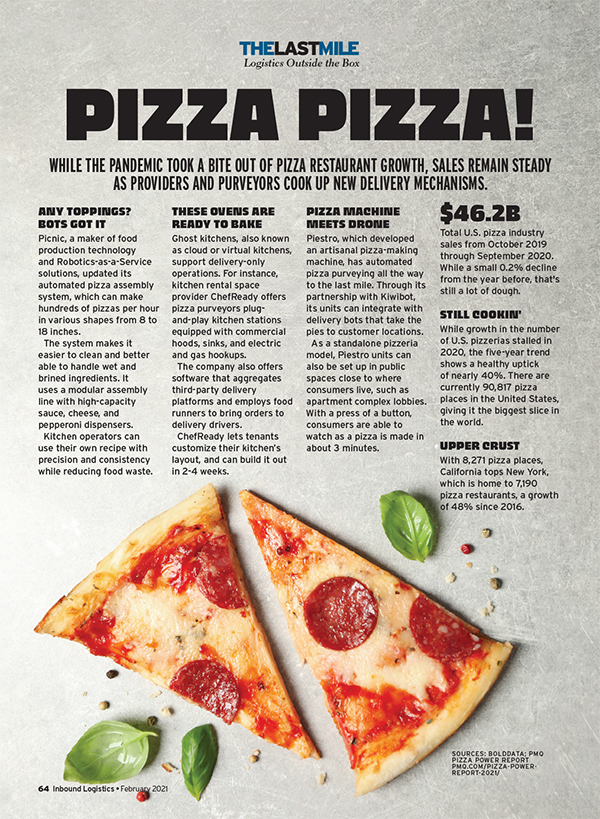

IoT, AI, ML: Keeping Innovation in Sight
Supply chain leaders eye up the Internet of Things, artificial intelligence, and machine learning to better predict demand, increase efficiency, cut costs, and power growth.
Read More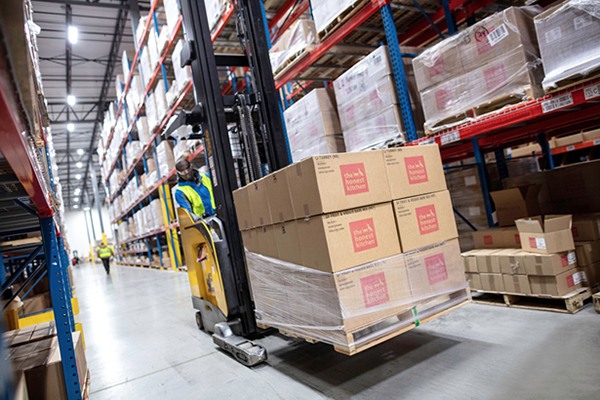
Working Like a Dog to Fill Pet Food Surge Orders
When significant growth at all-natural pet food company The Honest Kitchen compelled leadership to rethink its omnichannel logistics strategy three years ago, the company turned to long-time partner Saddle Creek Logistics Services for solutions.
Read More
Vertical Focus: Food & Agriculture
Reimagining the Future of Food The agriculture industry should consider these changes to prepare for inevitable future disruptions, a CropLife report says: Redesign. An ultra-responsive supply chain is needed to keep up with changing trade policies and supply dynamics. One example: Nutella’s hazelnuts come from Turkey, its cocoa from Nigeria, and its sugar from Brazil. […]
Read More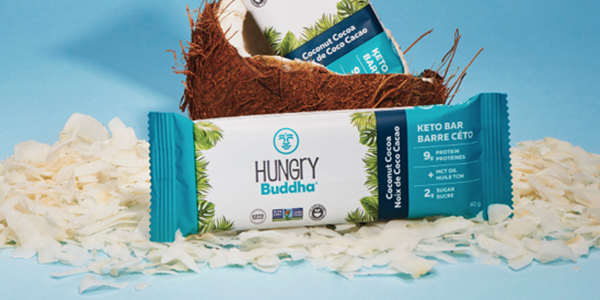
Buddha Brands Embraces the Philosophy of Supply Chain Integration
Buddha Brands, a provider of plant-based food and beverage products, including Hungry Buddha keto bars and Thirsty Buddha coconut water, has seen tremendous growth during the past decade. To sustain its success, however, the company needed more robust integration between its electronic data interchange (EDI) solution and enterprise resource planning (ERP) system.
Read More
Food Packaging: That’s a Wrap
Environmental impacts, cost concerns, and technology advances drive food packaging innovation.
Read More
Do You Like Raspberries?
Initial and erroneous reporting on a Wuhan wet market renewed a focus on food supply chain management, or FSCM. The virus episode reminds us that reputations of food value chain partners—vendors, transport providers, governments, buyers, and retailers—can and will be severely damaged by any food chain fail. Twenty-three million people get sick from unsafe food […]
Read More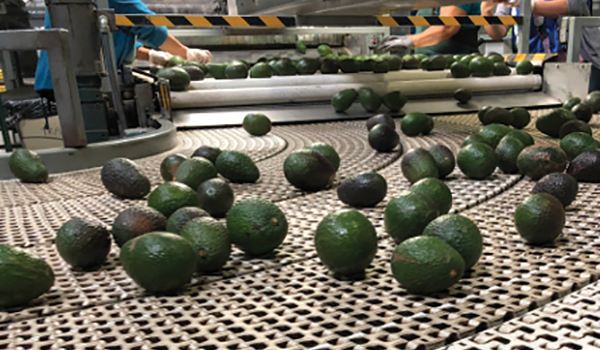
West Pak Avocado Grows a Ripe 3PL Partnership
Between 2007 and 2018, average avocado production around the globe grew by 5.3% annually, to about 6.4 million tons in 2018, according to Research and Markets. West Pak Avocado, an avocado grower and distributor based in Murrieta, California, has helped drive this increase.
Read More